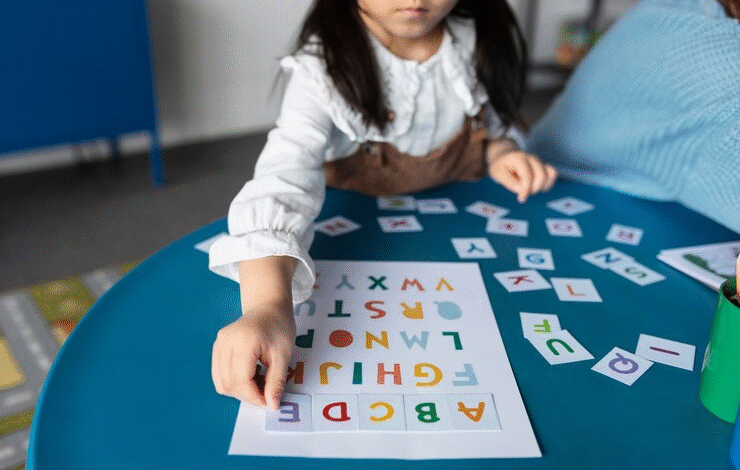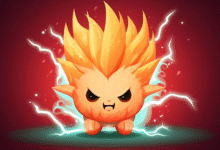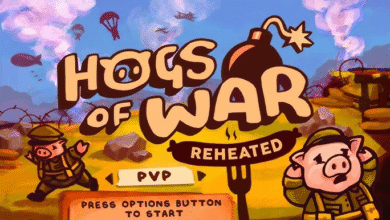Word Play: Fun with Words and Language

Word play is a clever way of using words to make things fun and interesting. It’s when writers, speakers, or even businesses use words in funny or creative ways to make people smile, laugh, or think. There are different types of word play, like puns, spoonerisms, and double entendres, that play with the meaning of words. Word play is used in books, movies, jokes, and advertisements to make things more entertaining. It’s a skill that has been around for a long time, and many famous writers, like William Shakespeare, were masters at using word play in their work.
In everyday life, word play can help people see things differently. When we use words in unexpected ways, it can make conversations more exciting. Sometimes, word play is funny, and other times, it helps us think deeper about language. For example, in the saying “Time flies like an arrow, fruit flies like a banana,” the use of word play makes us laugh and also think about how words can change meaning based on their context. Whether it’s in a joke, a poem, or a TV show, word play is a simple way to add fun to language.
Table of Contents
Understanding Word Play: The Magic Behind Clever Language
Word play is a fun way to use language creatively. It takes familiar words and phrases and makes them surprising or funny. This can be done by changing the sounds, meanings, or even mixing words together. Writers, comedians, and even businesses use word play to grab attention and entertain people. By using word play, we can make language more exciting and add humor to conversations. It’s not just about making people laugh, though. Word play can also make ideas easier to remember and add a twist to what we say. From puns to clever phrases, word play is a great tool that brings out the magic of language.
How Word Play Makes Language Fun and Memorable

Word play makes language more enjoyable by adding humor and surprise. It can turn an ordinary sentence into something interesting or funny. For example, when someone says “a chicken crossing the road,” they are using a familiar phrase in a way that catches your attention. People enjoy these playful twists on language because they make things more fun. Word play also helps people remember things better, especially when used in stories or jokes. If you’ve ever heard a joke that makes you laugh because of clever word play, you know how it sticks in your mind. This is why word play is not just about humor – it’s a powerful way to make language more memorable.
Types of Word Play: From Puns to Spoonerisms
There are many types of word play, and each one makes language more interesting. One popular form is puns, which are jokes that use words that sound similar but have different meanings.”I’m reading a book about anti-gravity – it’s impossible to put it down!” is one example. Another type is spoonerisms, where you swap the first sounds of words to create funny phrases, like saying “You have tasted the whole worm” instead of “You have wasted the whole term.” Malapropisms are also a fun form of word play, where someone uses the wrong word that sounds similar to the right one. These types of word play can make writing and speech more engaging and playful.
Word Play in Literature: How Writers Use Clever Language
Writers often use word play to add depth and fun to their stories. For example, William Shakespeare, one of the greatest writers in history, used puns and other forms of word play in his plays to create humor and make his characters more memorable. In his play Twelfth Night, Shakespeare uses word play to explore themes of love, identity, and misunderstanding. Literature’s use of word play can also assist in conveying complex concepts in a fun and straightforward manner.By using clever language, writers keep readers interested and make the story more enjoyable. So, next time you read a classic or modern novel, look out for the clever word play hidden within the text!
Why Word Play is Important in Everyday Conversations
Word play isn’t just for writers or comedians. It can make everyday conversations more fun and engaging. By using clever word play, we can add humor to our daily chats and make them more interesting. For example, playing with words can break the ice in awkward situations or create a more relaxed and friendly atmosphere. Word play can also help us express our thoughts in a unique way that grabs attention. Using word play in your conversations makes them feel more lively and enjoyable, and it shows that you have a good sense of humor. It’s a simple way to bring fun into any chat.
The Role of Word Play in Jokes and Comedy

In jokes and comedy, word play is one of the most important tools used to make people laugh. Comedians love to play with words to create humor. A simple pun, for instance, can turn a boring statement into something funny. Word play in comedy can be witty, clever, or even silly. By using word play, comedians can surprise their audience, catch them off guard, and keep them laughing. Word play can also help comedians make a point or add layers of meaning to their jokes, making them more clever and entertaining. Without word play, comedy would lose much of its fun and charm.
Famous Examples of Word Play in Shakespeare’s Works
William Shakespeare is known for his brilliant use of word play in his plays. He often used puns to add humor or clever twists to his stories. For example, in Romeo and Juliet, Shakespeare plays with the word “grave,” which has multiple meanings, creating both humor and depth. He also used word play to develop his characters, making them more interesting and memorable. Shakespeare’s ability to play with words helped him make his works both funny and thought-provoking. By using puns, double meanings, and clever language, Shakespeare made sure his plays had something for everyone – whether they enjoyed humor, wordplay, or deep philosophical ideas.
Word Play in Advertising: Making Business Names Memorable
In advertising, word play can be a clever way to make a brand name or slogan stand out. Companies often use puns or creative word combinations to make their products more memorable. For example, the name “Sole Man” for a shoe store is a playful word play that sticks in your mind. By using word play, advertisers can create catchy phrases that people remember easily. Word play in ads can also make the brand seem fun and approachable, which is great for attracting customers. Word play helps leave an impression, whether it’s in a clever slogan or a name that sticks out.
The Impact of Word Play on Learning and Creativity
Word play is a great tool for learning and creativity. It helps people think in new ways by showing how words can have different meanings and be combined in unexpected ways. When students use word play, they become more creative in their thinking and develop a better understanding of language. Teachers can use word play to make lessons more fun and interactive. Word play encourages students to think critically about how language works, which is a valuable skill in learning and problem-solving. It also helps develop creativity by encouraging students to play with words and come up with their own puns or clever phrases.
How to Use Word Play in Your Writing and Speech

Using word play in your writing and speech can make your language more engaging and fun. Start by experimenting with puns and phrases that sound similar but have different meanings. You can also use spoonerisms, malapropisms, or create your own witty expressions. Word play can help you grab your audience’s attention and make your speech or writing more memorable. To use word play effectively, be sure to keep it clear and appropriate for your audience.Avoid going overboard; sometimes, less is more. With practice, you can become skilled at using word play to add humor and creativity to your writing and conversations.
Conclusion
Word play is a fun and clever way to make language more exciting. Whether you’re telling jokes, writing stories, or just having a conversation, word play adds a creative twist to everything you say. It helps people remember things better and makes communication more enjoyable. By using word play, you can show off your creativity and sense of humor!
So next time you write or speak, try adding some word play to your words! It’s an easy way to bring a smile to someone’s face and make your language more interesting. Remember, word play isn’t just for writers – anyone can use it to make their conversations and ideas stand out. Have fun with words and let your imagination run wild!
FAQs
Q: What is word play?
A: Word play is when you use words in a clever way, like making puns or changing their meaning to make things funnier or more interesting.
Q: Why is word play important?
A: Word play makes language more fun, helps people remember things, and can make conversations and writing more enjoyable.
Q: Can I use word play in everyday conversation?
A: Yes! Word play can make everyday talks more fun and funny. You can use puns or clever phrases to keep things interesting.
Q: Is word play only for jokes?
A: No! Word play can be used in writing, stories, ads, and even in learning to make language more creative.
Q: How can I get better at word play?
A: Practice using puns, mixing words, and trying out funny phrases. The more you try, the better you’ll get at using word play!





